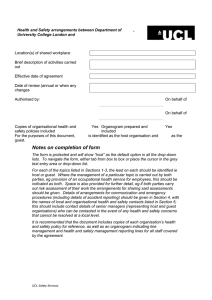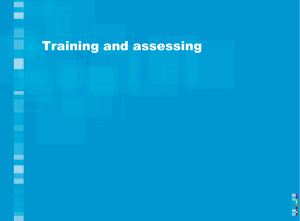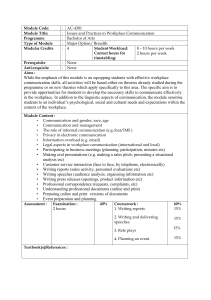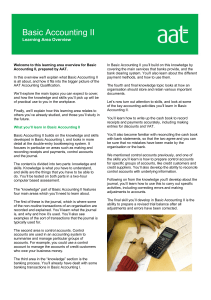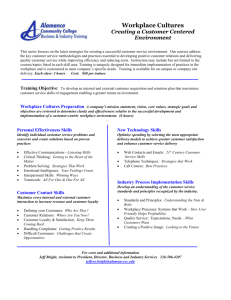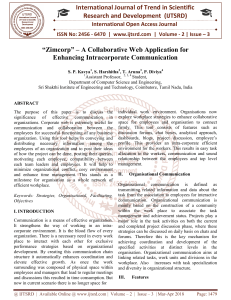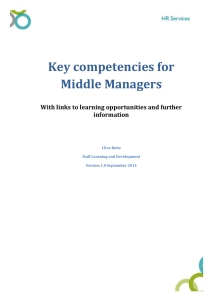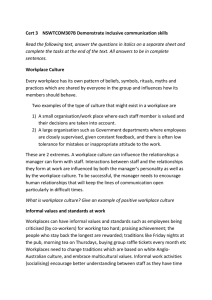Organisational Behaviour Questions How does the knowledge of
advertisement
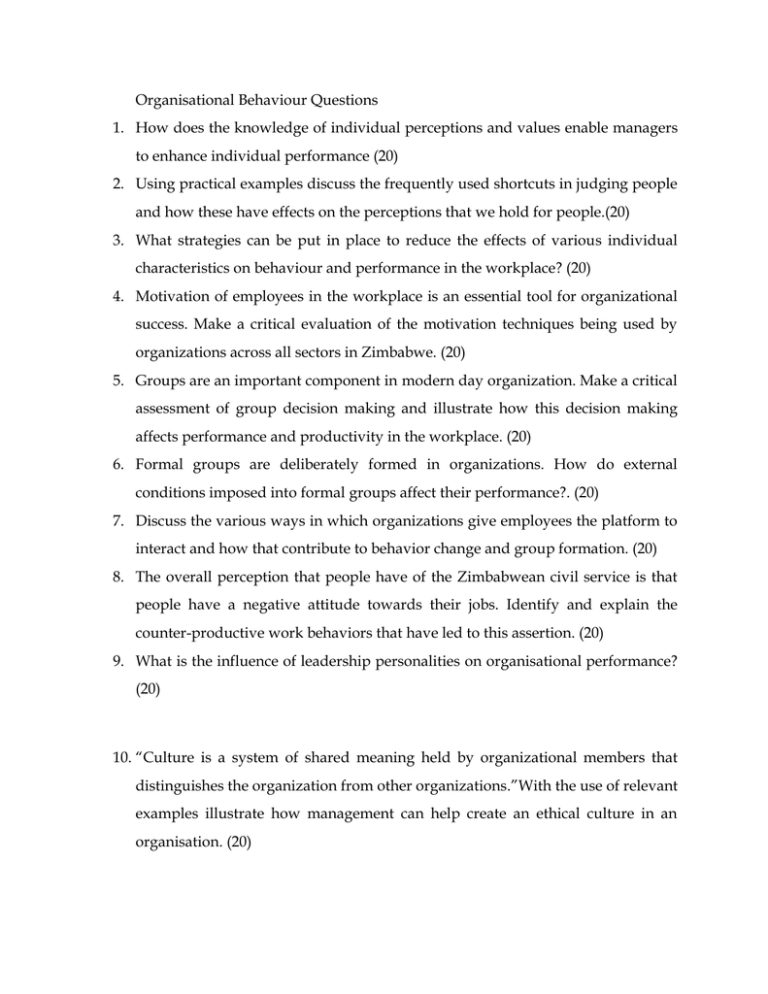
Organisational Behaviour Questions 1. How does the knowledge of individual perceptions and values enable managers to enhance individual performance (20) 2. Using practical examples discuss the frequently used shortcuts in judging people and how these have effects on the perceptions that we hold for people.(20) 3. What strategies can be put in place to reduce the effects of various individual characteristics on behaviour and performance in the workplace? (20) 4. Motivation of employees in the workplace is an essential tool for organizational success. Make a critical evaluation of the motivation techniques being used by organizations across all sectors in Zimbabwe. (20) 5. Groups are an important component in modern day organization. Make a critical assessment of group decision making and illustrate how this decision making affects performance and productivity in the workplace. (20) 6. Formal groups are deliberately formed in organizations. How do external conditions imposed into formal groups affect their performance?. (20) 7. Discuss the various ways in which organizations give employees the platform to interact and how that contribute to behavior change and group formation. (20) 8. The overall perception that people have of the Zimbabwean civil service is that people have a negative attitude towards their jobs. Identify and explain the counter-productive work behaviors that have led to this assertion. (20) 9. What is the influence of leadership personalities on organisational performance? (20) 10. “Culture is a system of shared meaning held by organizational members that distinguishes the organization from other organizations.”With the use of relevant examples illustrate how management can help create an ethical culture in an organisation. (20) 11. With reference to the work of Belbin , examine the roles/skills essential for effective team performance. 12. “Emotional intelligence is a different way of being smart. It includes knowing what your feelings are and using your feelings to make good decisions in life.” Discuss the five dimensions of emotional intelligence and how they have effect on individual behavior and performance. (20) 13. Explain the process involved in the development of an effective team or workgroup. (10) 14. Identify the five (5) stages in group formation. For each stage, discuss its implications to the manager. (20) 15. Critically evaluate individual decision making in light of the various individual characteristics (20) 16. Make an analysis of Schein’s cultural dimensions and show how they affect organizational performance and productivity. (20) 17. Evaluate the impact of emotional intelligence on individual behaviour and performance in the workplace. (20) 18. The existence of groups and teams had been an ever growing phenomenon in organisations. Discuss the value of groups and their relevance to an organisation of your choice. (20) 19. Compare and contrast individual and group decision making process, showing how each contributes to productivity. (20) 20. In a bid to improve performance and productivity in the workplace organisations have resorted to performance management initiatives. Evaluate the relevance and effect of any two performance management systems to an organisation of your choice. (20 )


